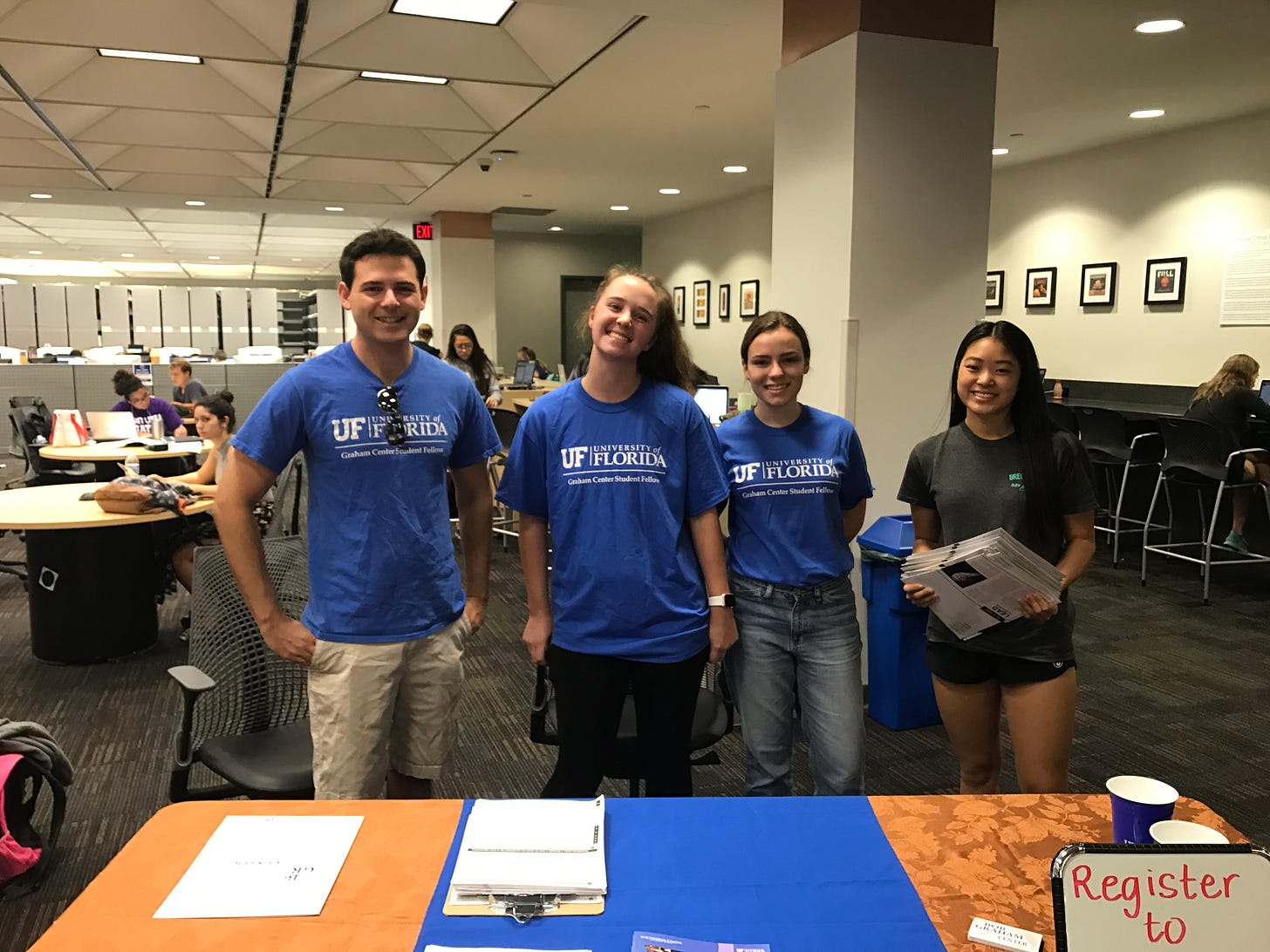How colleges and universities can support election officials right now, according to former election officials
Waves of engagement and activism have swept through the country’s colleges and universities this year ahead of the 2024 General Election. Meanwhile, mis-, dis-, and mal-information has swept through public spaces – not just colleges and universities – leaving election officials with the burden of administering yet another election in a chaotic information ecosystem.

State and local election officials are the source of trusted and official election information. By elevating information directly from local election offices, college and university administrators ensure what students are seeing is correct and helpful.
For election officials whose jurisdictions include college and university campuses, the benefit of these efforts is reflected operationally. Voters who aren’t informed about the process require both time and attention from election officials, which is in short supply as they prepare for Election Day. Like all first-time voters, college and university students require socialization to the process, and attempting to provide that ahead of their arrival at their polling places can go a long way in saving election officials time.
Here are a few simple ways administrators, faculty and staff can help during these final weeks before the election:
Leverage Your Communications Infrastructure. Colleges and universities already have large communications infrastructure that includes campus publications, internal Internet sites and email and, of course, social media. Many students look to their college community for information. University staff and faculty are in a unique position to convey timely, accurate information about elections to students. They can achieve this by working with local and state election offices to share election information. Some strategies to consider: offering print or online campus newspaper ad space to local election officials that focuses on the upcoming election, announcing important information like registration deadlines during campus sporting events, or if there’s a polling place on campus, communicating what activities are permitted around the polls.
In 2020, the Alachua County, Florida, Supervisor of Elections, Kim Barton, filmed this video with University of Florida President Kent Fuchs to raise awareness for on-campus early voting opportunities.
Use Information from Trusted Sources. Political dialogue about elections is healthy and welcomed on campus. However, information like deadlines, ID requirements, when and where to vote and how to become a poll worker have defined correct and incorrect answers. Help students access official sources of civic information by promoting state and local election offices on social media. Work with a local official to fact check any university-sponsored publication or post that deals with deadlines, eligibility or ways to vote. Students trust their professors and campus leaders. State and local election offices are a reliable source of information on what students need to know about elections.
Be Mindful of Out of State Messaging. Most student bodies include out-of-state residents. Laws about absentee voting differ in each state, although generally students are eligible to register in their home state or college state, but not both. Contacting state or local officials and preparing a short fact sheet for out-of-state students can help ease the voting process for out-of-state students. A good singular message might be: “If you are uncertain about your eligibility to vote, contact your hometown local official.” Where students register and vote could impact things like in-state tuition status. Consider preparing a short fact sheet about voting, residency status and in-state tuition.
Be a Partner for Poll Worker Recruitment. Poll worker recruitment is a vital area where college administrators can assist election officials. Reach out to your local office to learn about their needs and also the requirements and expectations for poll workers. Administrators can promote poll worker opportunities through campus-wide emails, student organizations and job boards. Some universities may offer academic credit or service hours to incentivize students. Additionally, campuses can serve as convenient training hubs, allowing election officials to hold multiple poll worker training sessions to ensure all recruited workers are well-prepared.



